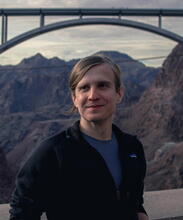
Unwanted transitions of a superconducting qubit induced by microwave drives
Quantum bits realized by microwave circuits built from superconducting components such as capacitors, inductors, and tunnel junctions are one of the leading platforms for creating a fault-tolerant quantum computer. A roadblock towards this goal is the insufficient fidelity of operations – single-qubit gates, two-qubit gates, and readout measurements – performed on the quantum bits via microwave pulses. The main limitation of operation fidelity comes from decoherence. If the operation is performed too slowly compared to the decoherence time, a qubit error will happen. Usually, it is possible to speed up the operations by increasing the power of the microwave pulse. However, reducing the pulse duration and increasing its power was found to induce unwanted state transitions of the quantum bit, often to non-computational excited states.
The present thesis explores the origin of unwanted state transitions of a superconducting transmon qubit caused by microwave pulses. Through a set of systematic experiments and theoretical calculations, we classify all such transitions into three categories, according to their origin. First, the transitions may stem from activation of spurious resonances in the spectrum of the quantum bit. Second, the transitions may be caused by inelastic scattering of photons constituting the microwave pulse off the qubit and into the qubit environment. Finally, microwaves may accelerate the qubit decay through the AC Stark effect. The latter happens when the coupling of the qubit to its environment is stronger at the Stark-shifted frequency. The thesis provides a comprehensive roadmap for suppressing microwave-induced transitions, thus contributing to the improvement of the fidelity of superconducting qubit operations.
Thesis committee: Michel Devoret (advisor), Steven Girvin, Leonid Glazman, Robert Schoelkopf, Ioan Pop (external reader)